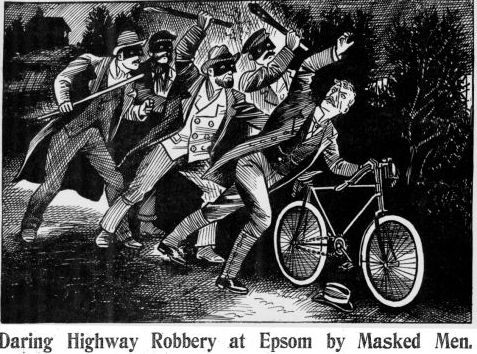
Pot legalization is an issue that has been largely ignored by Democrats and Republicans, but championed by libertarians. And now it’s sweeping the country, as more and more states jump onboard.
I often get newsletters from various libertarian groups, and I’ve noticed that asset forfeiture laws are another big concern. Police who pull someone over on the highway can simply take the driver’s money, on suspicion that the funds were used in some sort of crime. No crime need be proved. It’s highway robbery by police.
In other cases, a minor conviction results in the forfeiture of a valuable piece of property, worth far more than the maximum fine imposed for the crime. For instance, an Indiana man had his $42,000 SUV seized by the government after being arrested for a minor drug offense with a maximum penalty of $10,000. Asset forfeiture process is a completely lawless system, which relies on the discretion of law enforcement officials. They do not have to prove anything in order to seize one’s property.
While Democrats and Republicans ignored this issue, libertarians fought hard to eliminate the practice. Now the Supreme Court has struck a blow against unrestrained asset forfeiture:
WASHINGTON — Siding with a small time drug offender in Indiana whose $42,000 Land Rover was seized by law enforcement officials, the Supreme Court on Wednesday ruled that the Constitution places limits on civil forfeiture laws that allow states and localities to take and keep private property used to commit crimes.
Civil forfeiture is a popular way to raise revenue, and its use has been the subject of widespread criticism across the political spectrum.
The revenue aspect of asset forfeiture is particularly corrupt. Police seize assets to gains revenue for their own use, to help fund more lavish police budgets. This is something you expect in third world countries, not advanced democracies.
Occupational licensing, organ transplant markets, and zoning reform are other areas that are ignored by the two big parties. Let’s see if we can begin to make progress on more parts of the libertarian agenda.
PS. It was a unanimous 9-0 decision, which is one reason why I’m skeptical of arguments that focus on “liberal” and “conservative” justices. All that matters is whether they are good judges or bad judges.


READER COMMENTS
Michael Sandifer
Feb 20 2019 at 6:07pm
In fairness, many Democrats have favored drug decriminalization for decades, though precious few in the party leadership.
Scott Sumner
Feb 20 2019 at 7:31pm
Yes, and many Republican voters too. It’s the party leadership that is the problem, even today.
Joshua Snider
Mar 15 2019 at 7:54pm
Legalizing weed was part of the Democrats 2016 platform. I honestly have no idea why Obama never came out in favor of it.
Benjamin Cole
Feb 20 2019 at 7:01pm
I am glad to see Scott Sumner devote some pixels to local and state government excesses.
American libertarians often seem to have a near peevish fixation on grand issues such as global “free-trade” but ignore the much larger structural impediments and government excesses of property zoning and the routine criminalization of pushcart or sidewalk vending.
Interestingly, my understanding is that in India the right to be a pushcart vendor is guaranteed under law.
It seems to me that the government should have no right to zone property— I do not understand why American libertarians are so squishy on this issue, and usually at best merely call for some sort of undefined reforms of property zoning systems.
Mark Z
Feb 20 2019 at 8:12pm
Apparently the amount of revenue being raised via civil asset forfeiture had been (not sure if it still is) going up significantly since around the mid 2000s. I expect many people were willing to shrug it off as long as it only happens to fairly few people, especially supposed criminals; but maybe the government got greedy and ‘overused’ asset forfeiture and just robbed too many people for it to stay on the backburner. Maybe Lenin was right about worse being better in the end.
George
Feb 21 2019 at 8:56am
I await the day when drug prohibition ends across the board. I have spoken to so many people who understand the lessons learned from the alcohol prohibition years but fail to apply that to drugs.
At least there is some progress. Gives me hope for a saner future.
Tom Jackson
Feb 23 2019 at 10:38am
I loved Scott Sumner’s replies in the comments when Tyler Cowen wrote recently in favor of decriminalization of marijuana rather than full legalization. I know Scott isn’t sitting at the piano taking requests, but I’d love to see a full blog post from Scott on this issue.
Pierre Lemieux
Feb 25 2019 at 2:50pm
Thanks, Scott, for reminding us that not everything is bleak and that we have some reasons to be optimistic about the influence of our writings.
Comments are closed.